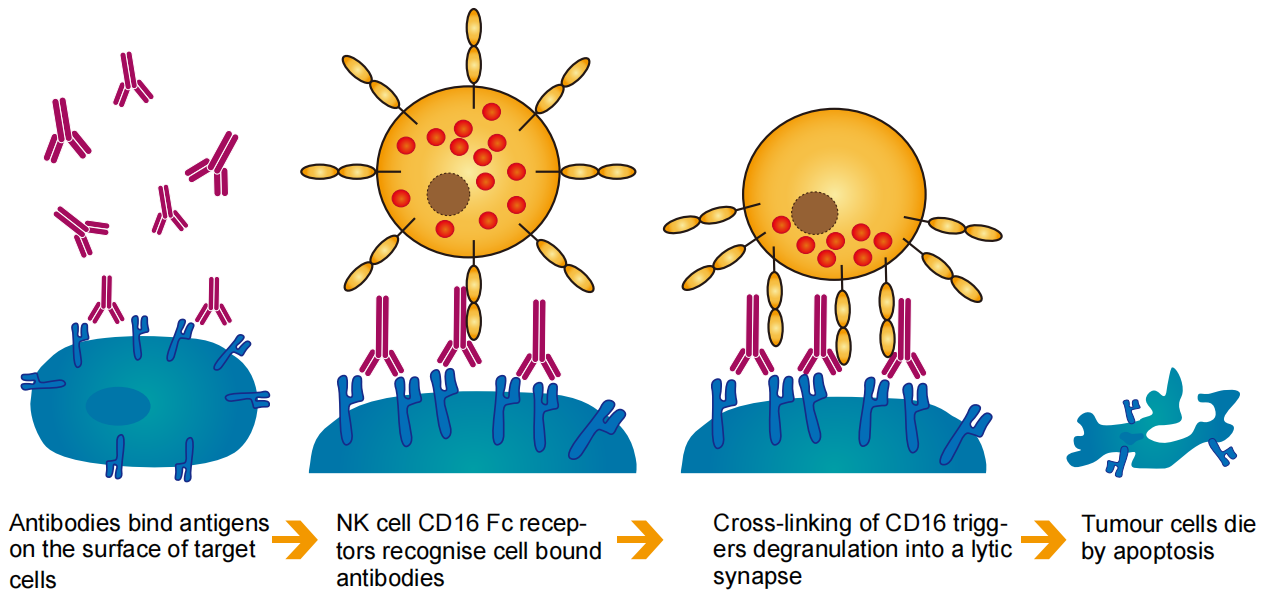Antibody-dependent cell-mediated cytotoxicity (ADCC) is a process in which antibodies play a vital role in cell-mediated cytotoxicity. In this context, the Fab fragment of an antibody binds to the surface proteins of infected cells or tumor cells, while the Fc fragment binds to surface receptors on immune cells, such as NK cells and cytotoxic T cells. This binding activates these immune cells, which then directly kill the target cells. ADCC serves as the primary mechanism by which the body clears cells infected by viruses or other pathogens through antibodies. It is also a key mechanism behind the clinical effectiveness of antibody drugs. Given the essential role of ADCC, detecting the biological activity of ADCC for antibodies has become a crucial step in antibody drug development and quality control.

Case: Rituximab mediated antibody-dependent cell cytotoxicity
Fig. Rituximab-mediated cytotoxicity reaction (ADCC)
GemPharmatech Advantages
Extensive library of target cells (300+ cancer cell lines and humanized cell lines) and qualified BSL-2 level laboratories.
Providing free comparator antibody therapy for common viral Infections.
The selection and verification of the ADCC function, based on the supplier's origin and their effects, offer a guarantee for successful experimental outcomes.
Extensive project experience.
Meeting the regulatory requirements for new drug applications.
Strict laboratory data storage standards ensure experiment traceability.


